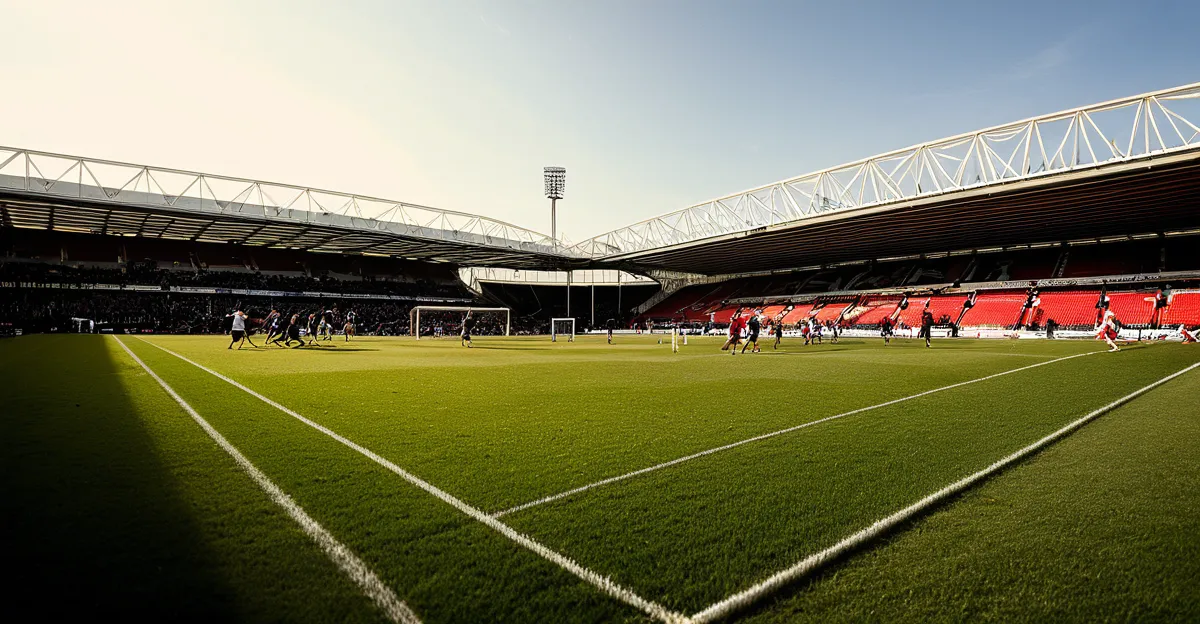The Relationship Between British Sports Culture and Social Cohesion
British sports culture has long acted as a powerful catalyst for social unity, bringing together diverse communities across the nation. From the bustling terraces of football stadiums to the cricket greens shared by generations, sport creates a collective identity that transcends individual differences. Historically, sports in Britain have provided a common language that fosters community building by creating shared experiences and memories.
The significance of sporting events is not just in the game itself but in their capacity to serve as social rituals, where fans participate in traditions that reinforce solidarity. For instance, local football matches often become weekly gatherings that promote interaction among residents, enhancing neighborly bonds and mutual support. Similarly, nationwide tournaments can evoke a strong sense of belonging and national pride, uniting people across regions.
Also read : What Are the Unique Challenges Faced by Athletes Competing in UK Sports?
Moreover, British sports culture supports social cohesion by offering platforms where people from varied backgrounds unite under common banners. This merging of identities reflects a deeper social function: sports act as an arena for mutual understanding and respect. Through these shared passions, British sports culture continues to weave the fabric of stronger, more connected communities.
Historical Foundations of Sports and Social Unity in Britain
British sports culture has deep roots in the history of British sports, shaping social cohesion over centuries. The rise of popular sports like football, cricket, and rugby in the 19th century coincided with urbanisation and industrialisation, providing workers with a shared pastime that fostered community building. These sports became more than games; they were social rituals that united different classes and regions.
In the same genre : How Can UK Sports Inspire Young Athletes to Overcome Challenges?
Sporting traditions evolved as fan communities formed around clubs, creating pockets of local pride. Early football clubs, often founded by churches or factories, served as social hubs where individuals from diverse backgrounds mingled, breaking down social barriers. These clubs also organised matches and events that reinforced neighbourhood ties and collective identities.
One prominent example is how local cricket matches brought together villages and towns, promoting social interaction beyond daily routines. Similarly, the Football Association’s formation in 1863 formalised rules, facilitating nationwide competitions that strengthened social unity. Through these sporting traditions, British sports culture laid the foundation for enduring social bonds and collective identity that persist today.
Community Building Through Sports Clubs and Local Engagement
British sports clubs have long been central to community engagement, acting as vital social hubs for local interaction. Football, cricket, and rugby clubs offer more than just sporting activities; they cultivate relationships by bringing together residents across ages and backgrounds. These clubs organise local sports events that promote community building on a grassroots level, encouraging participation and shared experiences.
Local football clubs, often embedded in town life, create weekly rituals that foster neighbourly connections. Cricket clubs serve a similar role, uniting players and spectators in communal settings. Rugby clubs frequently host social gatherings, strengthening bonds beyond the pitch. These activities enhance social cohesion by creating spaces where diverse groups can interact positively.
Furthermore, many British sports clubs engage in outreach initiatives, aiming to increase inclusivity and widen participation. Efforts include youth programs, accessible facilities, and community volunteering opportunities. Through these approaches, British sports culture supports local unity by nurturing environments that promote social inclusion and solidarity. This continuous involvement illustrates how community engagement in sports remains indispensable for building resilient, connected communities.
Fan Culture and Collective Identity
British sports culture thrives on sports fandom, where shared rituals and traditions create lasting bonds among supporters. Fans gather regularly to chant, wear team colours, and partake in pre-match routines, reinforcing a collective identity rooted in loyalty and passion. These activities turn stadiums and local pubs into vibrant social spaces that cultivate solidarity across diverse age groups and backgrounds.
The development of social networks among British fans extends beyond the game itself. Fan clubs, online forums, and community events offer platforms for ongoing interaction, promoting a sense of belonging. These social connections empower individuals to feel part of something larger than themselves, providing emotional support and shared purpose.
Major sporting events further amplify this dynamic by fostering national and local pride simultaneously. For example, international football tournaments unite British fans under a common flag, while club rivalries maintain deep yet respectful local identities. These expressions of unity and identity demonstrate how British sports fandom is integral to social cohesion, turning individual enthusiasm into collective strength.
Addressing Divisions and Challenges in British Sports Culture
British sports culture, while a force for social unity, faces persistent challenges linked to sports divisions and inclusivity. Rivalries among clubs or regions can sometimes fuel exclusion rather than cohesion, with tensions arising from historical, social, or economic differences. For instance, fierce football rivalries may lead to divisions that momentarily disrupt the broader sense of community building inherent in sports.
Efforts to address these divisions focus on promoting inclusivity and combating discrimination. Many sports organisations and clubs have introduced initiatives emphasising diversity training, anti-racism campaigns, and community outreach programs. These efforts aim to create welcoming environments that reflect the multicultural fabric of British society.
Despite these strides, some social challenges in sports, such as sexism and inequality in access, persist. Balancing competitive spirit with the need for unity requires ongoing commitment. By recognising and actively addressing these issues, British sports culture can continue evolving as a platform that champions solidarity and social cohesion, even amid its complexities. This approach ensures that British sports remain a positive force in fostering inclusive community building across all levels of participation.
Perspectives from Experts and Academic Research
Experts in sports sociology highlight that British sports culture plays a vital role in fostering social cohesion, particularly by creating shared spaces and experiences that promote community unity. Academic viewpoints indicate that sports act as microcosms of society, reflecting broader social dynamics while offering opportunities for interaction across diverse groups.
Research in social studies on sports demonstrates how participation and fandom encourage emotional bonds that strengthen collective identity. Case studies reveal that sports events and clubs facilitate mutual understanding and respect among individuals who might otherwise remain socially distant. For example, studies show that inclusive community sports initiatives reduce social isolation and promote integration.
However, academic research also acknowledges limitations and challenges within British sports culture. Persistent inequalities and sports divisions sometimes hinder the full potential for unity. Experts point out that ongoing efforts are necessary to address exclusion and discrimination, ensuring sports remain a positive force for broader social good.
Overall, scholarly perspectives emphasize the importance of continued promotion of inclusivity within British sports culture to maintain its role as a powerful platform for community building and lasting social unity.









